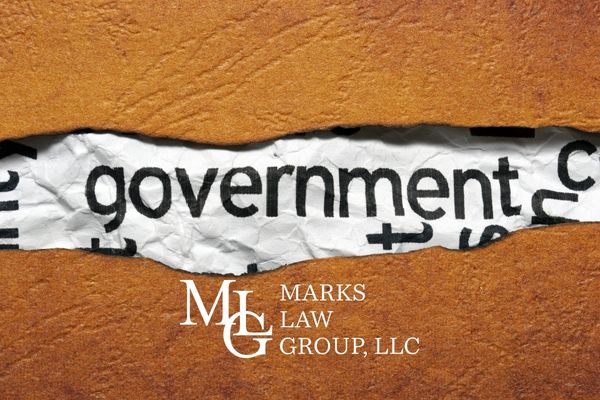If you’ve been injured and it was the fault of the government, making a claim against them can seem like an impossible task. After all, the government is a mighty opponent! But don’t despair—you still have legal options.
Generally, in the united states, you can sue the government for negligence, just like you can with any other party. However, there are some special rules that apply when filing a claim against the government.
In this article, we’ll tell you all about how to file an injury claim against the government in Georgia. For any questions contact an experienced Decatur, GA personal injury attorney today for a free consultation!
What Qualifies as a Valid Claim?
A claim simply means that you are seeking a legal remedy for damages. To qualify as a valid claim against the government, your suffering must be their fault and your injuries must be the direct result of their negligence. You can have a claim against government negligence.
For example, if you’re injured in a car crash caused by a government employee or agency’s recklessness, then you may be able to make a valid claim.

In Georgia, you can only make a claim against the government if it can be proven that the failure to exercise reasonable care was the direct cause of your injury. This means that if the government is doing something that it should not be doing, such as failing to keep roads or parks safe, and this directly results in injury, then you may have a case.
A Personal Injury Lawsuit Against the Government
A personal injury lawsuit is a civil action brought by an injured person against the faulty party in order to recover damages for injuries suffered. Injury victims are entitled to seek compensation for medical bills, lost wages, and other personal injury damages.
However, it’s important to note that suing the government is much more complicated than suing a private entity. The rules are different, and it’s important to know what you’re getting into before filing a claim.
The first step is to determine who you’re suing—in Georgia, this could be a state of government agency, county government, or city government. Each has its own rules and regulations when it comes to personal injury claims, so it’s important to be sure you’re filing your claim in the right place.
Filing a Notice of Claim
Next, you’ll need to file a Proper Notice of Claim with the agency or government you’re suing. This document serves as an official notification that you are filing a claim and it outlines the details of your case. You should include all relevant information, such as names, addresses, and dates of the injury in order to satisfy all notice requirements.
Response from the State
After you file your Proper Notice of Claim, the state will have to respond within a certain period of time. This is their time to investigate and decide whether or not to approve or deny your claim. If the claim is approved, the state will then enter into negotiations and you’ll receive a settlement.
Mediation
Depending on the size of the claim, the state may require you to go through mediation. This is a process where both parties will meet with an impartial third party who will help them come to an agreement or fair compensation. If an agreement can’t be reached, then the case will proceed to court.
Lawsuit
If your claim is denied, then you’ll need to file a lawsuit against such a governmental entity. This process can be lengthy and it’s important to know that the government is immune from certain types of damages, such as punitive damages.
Nonetheless, you’ll need to prove your case in court. You’ll need to provide evidence that the government was negligent and that their negligence caused your injury. This can include medical records, police reports, and witness testimonies.
What You Need to Prove a Claim
To prove that your claim is valid, you must be able to show:
1. That the government was negligent or at fault in some way
2. That the government’s negligence directly led to your injury
3. That you have evidence that supports your claim

You should keep all of your evidence, including medical records (i.e., medical bills for medical treatment) and any other documentation related to the incident. This is critical in order to build a strong case against the government.
A personal injury attorney can help you navigate the process of making a claim against the government, as well as assist you in gathering evidence and representing your case in court. It’s important to have an experienced attorney on your side when taking on the government, as they will be able to provide you with guidance and legal advice throughout the entire process.
Filing a Lawsuit Against the State of Georgia
In Georgia, you must file a claim within two years from the date of the injury or when you discovered the injury. After this period, you may no longer be able to file a claim and you could lose your right to collect or claim damages. This is the time limit known as the 'Statute of Limitations.'
In order to sue the state of Georgia, you must first prove that your injury was caused by the government’s negligence. Generally speaking, if you can prove that the government failed to exercise reasonable care and this caused your injury, then you may have a case.
However, it’s important to note that the government is immune from certain kinds of damages, such as punitive damages. These are awarded in cases where the conduct of the government was especially egregious and/or malicious.
What is Sovereign Immunity?
In Georgia, the government is protected from certain kinds of lawsuits by a legal concept or doctrine called “sovereign immunity.” This means that the government can’t be held liable for any compensatory damages unless it has explicitly waived its immunity. Essentially, it excludes the government from liability. Whether it is absolute immunity or qualified immunity, the government is usually not liable for any damages in a personal injury case.
FAQ: How much does a personal injury lawyer cost in Georgia?
Tort Claims Act
In Georgia, the Tort Claims Act is the statute that allows citizens to sue the state and local governments. This act provides guidelines for filing a claim and outlines the types of damages (e.g., monetary damages or non-economic damages) that can be recovered. It also sets limits on the amount of money you can recover. Note that it must be proved that the government has a duty of care (as a legal duty) and there is a breach of duty.
Contact Marks Law Group Today!
Making a claim against the government is not something to be taken lightly—there are a lot of rules and regulations that must be followed in order for a successful outcome. Knowing the details of how to file a claim in Georgia and what your rights are as an injured party is essential for getting justice. It’s important to remember that you have rights, and it’s up to you to stand up for them.
If you have been injured due to the negligence of a government entity, contact Marks Law Group today. Our personal injury lawyers guide you through the complex process of filing a claim and help you get the compensation you deserve. Don’t let the government take advantage of you! Contact us today.
